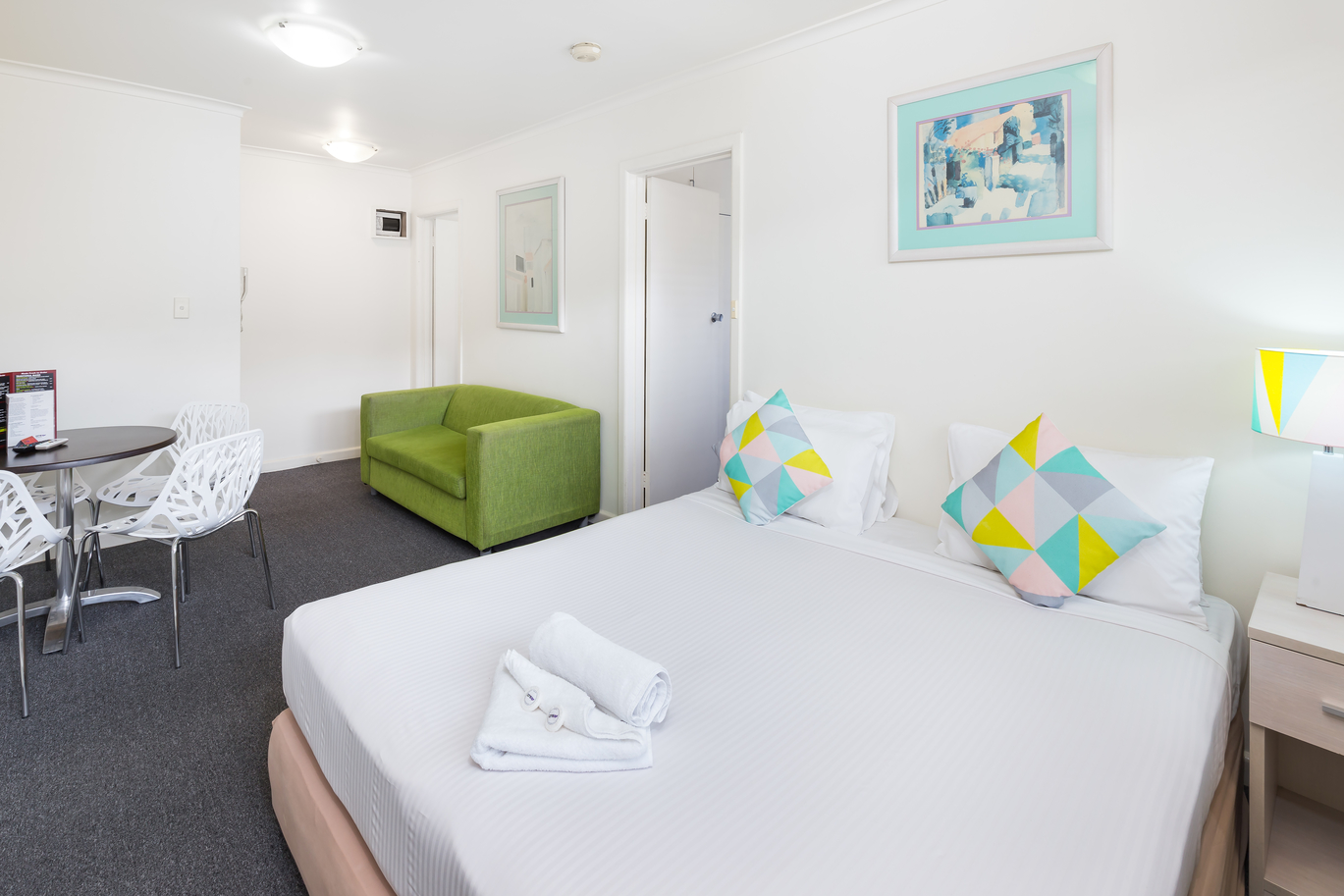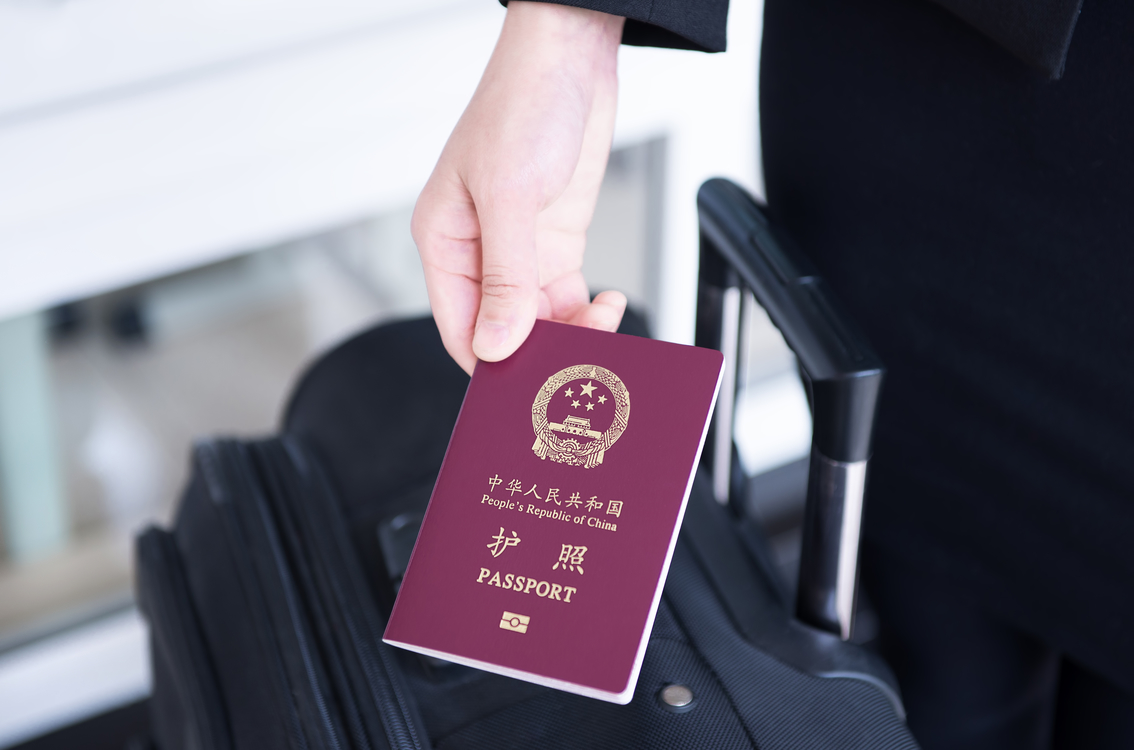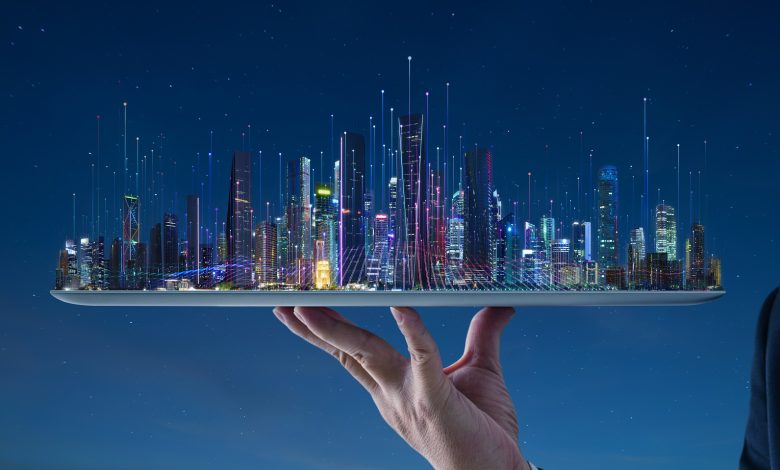
A new era of hospitality: Exploring mobile apps for accommodation
With the future of the Australian accommodation industry predicted to be mobile-app-centric, let's investigate the impact of PWA technology
The accommodation industry in Australia is no stranger to adapting to changing trends and technologies to meet the demands of modern travellers.
In recent years, mobile apps have emerged as powerful tools that have revolutionised the way guests experience their stays and how accommodation businesses operate.
Our latest AccomNews print issue is available now. Read it HERE
A new era of hospitality
Let’s look at the impact of mobile apps on the sector and talk to the experts about how Progressive Web Apps (PWAs) are revolutionising the guest experience, streamlining operations, and unveiling future trends.

Byron Webster, Executive Director, SABA Hospitality is an expert in PWA technology space for hospitality.
When asked about how PWAs enhance the guest experience, he explained, “by providing a seamless and immersive experience across the guest’s own device, allowing easy access to information, ordering, and communication with the accommodation provider”.
He said: “PWAs can offer a very personalised experience to guests throughout their entire journey. From local recommendations to nearby attractions, and personalised offers. Everything is available 24/7 in the guest’s own language.”
In terms of improving property management and staff operations, PWAs streamline and automate processes, reduce manual effort, and enhance efficiency. Tasks such as check-in and ordering food and beverages can be digitised and automated, freeing up staff to focus on other high-impact guest interactions.
He said: “Real-time messaging features within PWAs facilitate effective communication and collaboration among staff members, enabling seamless coordination and timely updates. The integration of PWAs with existing property systems further enhances operational efficiency and provides a user-friendly interface for staff.
“In essence, PWAs provide guests with greater control over their journey and overall accommodation experience, while driving additional revenue and efficiency for accommodation providers.”
Data security and privacy
These are critical considerations when it comes to mobile apps. Protecting guest and staff information is of utmost importance, to maintain trust and comply with privacy regulations and accommodation businesses should implement security measures to prevent unauthorised access to sensitive data.

On this issue, PWA expert Vetri Mayandi, Chief Commercial Officer, Gtriip, stressed the importance of employing secure login, encryption, and data storage policies.
He said: “Robust authentication mechanisms, such as strong passwords, two-factor authentication, and biometric authentication, should be implemented. Sensitive data should be encrypted both in transit and at rest, and compliance with data protection regulations should be ensured.”
He recommended that regular security audits and vulnerability assessments should be actioned to identify and address any potential weaknesses.
What’s next?
On the future of apps in hospitality, Mr Mayandi expressed excitement about several emerging trends and technologies.
He stated the impact of artificial intelligence (AI) and machine learning (ML) will be “transformative in providing personalised customer support and tailored recommendations”.
He said: “The Internet of Things (IoT) enables automation and intelligent control of room amenities, enhancing guest comfort and personalisation. Augmented Reality (AR) and virtual reality (VR) technologies will also allow guests to explore accommodations through virtual tours and overlay digital information onto the physical environment.
“Blockchain technology is also progressing and offers decentralised and secure solutions for payment processes, data security, and transparent guest reviews and ratings.
“Additionally, contactless technologies like digital compendiums, mobile ordering, payments, and room keys have gained significant traction, especially in the post-COVID-19 era, improving convenience and safety.
Hospitality apps will continue to evolve and integrate emerging technologies such as VR. This will offer immersive experiences that will only continue to enhance guest confidence and help travellers make informed choices.
AI will also play a significant role in mobile app advancements; AI algorithms can analyse guest preferences and behaviour patterns to provide personalised recommendations and tailor services to individual needs, while the release of ChatGPT will allow technology providers to take their existing communication platforms and elevate the complexity and accuracy of interactions.
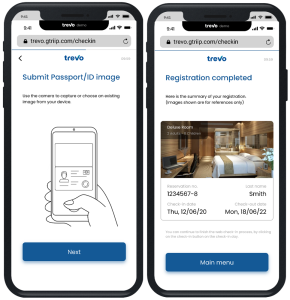
And industry trends?
The global focus on sustainability and minimising environmental impact is well underway, with mobile apps already integrating with many smart energy management systems. Soon it will become the ‘norm’ for guests to control various aspects of their room, such as lighting, temperature, and entertainment systems using their own mobile devices. This will promote energy conservation and reduce the overall carbon footprint of the accommodation. Mobile apps can also provide guests with eco-friendly tips and incentives to encourage sustainable behaviours and allow for the removal of paper and plastic-based collateral from the hotel environment.
Furthermore, mobile apps enable more efficient resource management. Real-time reporting capabilities allow managers to monitor energy consumption, water usage, and waste generation. This data also empowers them to identify areas for improvement and implement strategies to reduce resource consumption and waste production.
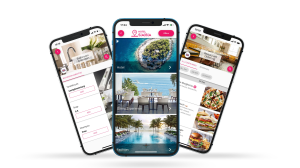
In conclusion
Mobile apps are transforming the accommodation and hospitality sector by enhancing guest experiences through convenience, personalisation, and seamless interactions.
The transformation is exciting because it empowers travellers, enables data-driven improvements, and fosters business innovation and growth. Real-time reporting capabilities provide staff with up-to-date information on occupancy rates, guest feedback, and revenue and access to this data allows operators to make data-driven decisions in real time, helping to optimise operations and improve business performance.
The future of the Australian accommodation sector is mobile-app-centric, promising a more delightful and tailored experience for guests.
Mandy has over 17 years of accommodation and tourism industry writing experience and is Editor of AccomNews & Resort News, Publisher of SchoolNews & Director of Multimedia Pty Ltd. She is a retired registered nurse with a 25-year NHS career that followed a few unforgettable years in hotel housekeeping.

